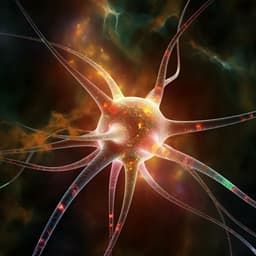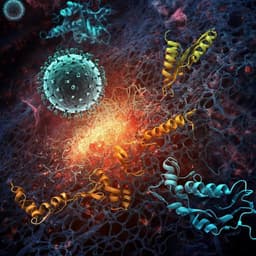
Medicine and Health
SARS-CoV-2 infection of human lung epithelial cells induces TMPRSS-mediated acute fibrin deposition
R. Erickson, C. Huang, et al.
Discover groundbreaking research by Rachel Erickson and colleagues on a novel fibrin clotting mechanism linked to severe COVID-associated lung injury. This study reveals how SARS-CoV-2 infection in primary lung cells triggers fibrin formation and highlights the limitations of current anticoagulation treatments, making a compelling case for developing new therapeutic strategies.
~3 min • Beginner • English
Related Publications
Explore these studies to deepen your understanding of the subject.







